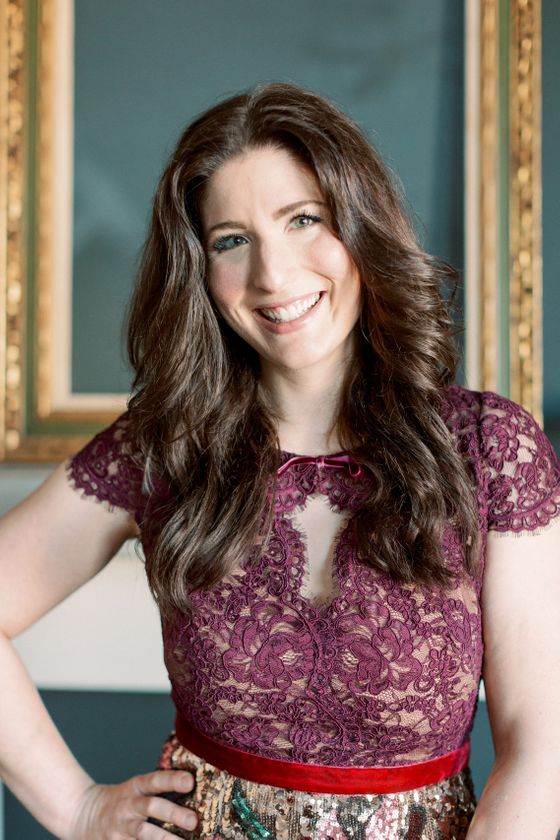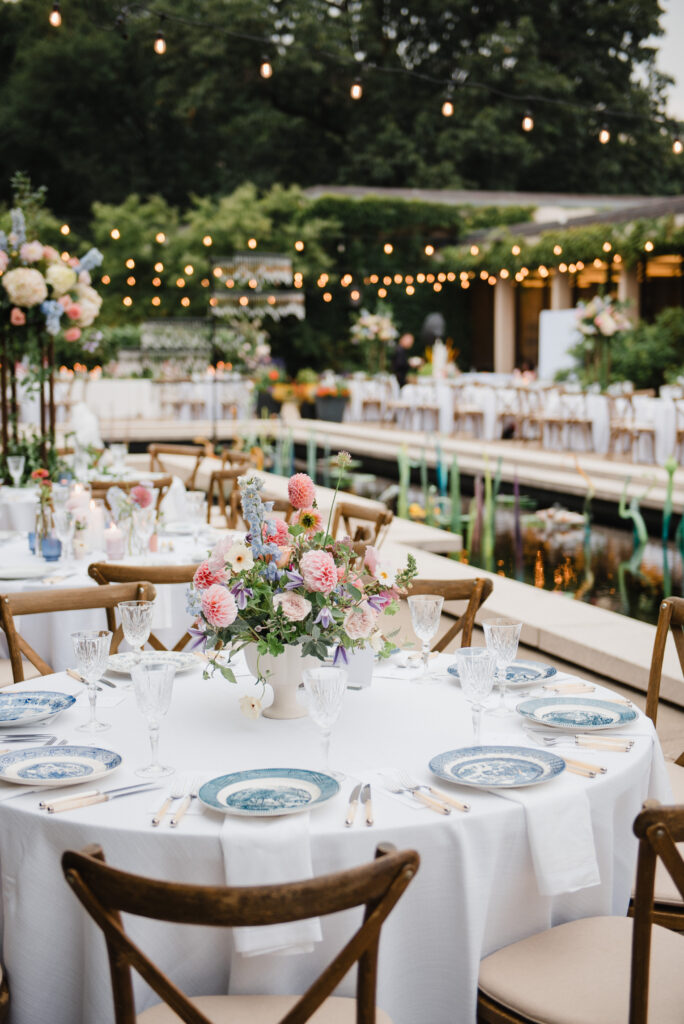ETIQUETTE EXPLAINED
By Alexandra Golden

Whether you are planning or attending a wedding or b’nai mitzvah, usually at least one question comes to mind regarding etiquette. It could involve confusion over what to wear, invitations or a particularly difficult situation. With each major celebration you attend, there’s likely an aspect you’ve never experienced before.
For that reason, Celebrations sought questions from our readers and friends about what they’d most like advice on as another busy party season approaches. We then asked local planning industry professionals for their advice on how to best approach a handful of tough questions that inevitably arise leading up to or during big events.
Gina Jokilehto-Schigel, owner and creative director of Shi Shi Events, and Kim Singerman, founder of Noteworthy Events, both which serve Northeast Ohio, share their expertise and opinions on etiquette questions for weddings, b’nai mitzvahs and general events. Their responses have been edited for brevity and clarity.

My sister’s wedding is this fall, and my friend’s is the weekend before. I am worried this will all be too much back to back for me, and about catching COVID at the first wedding and missing my sister’s, for which I’m maid of honor. Should I decline to attend my friend’s wedding (I am not in the wedding party)? What is the etiquette for handling this with my friend?
Jokilehto-Schigel:With any large event that you attend since 2020, and certainly during times of peak activity, there’s always risk when you go out. But you could also go to your friend’s wedding and get food poisoning or catch a cold. If the most important thing is your sister’s wedding, it would make sense to be conservative as possible in your activities in the weeks and days leading up to the wedding. If you want to be overly cautious, I would not only apply that to your friend’s wedding, but everything that you’re doing in your day-to-day life leading up to the wedding. For handling this with your friend, I would be very kind and very honest about it. Just state your concerns. I think any person hosting events or having gatherings understands still, four years into it, that we have different levels of comfort in what we’re wanting and willing to do with our lives. I would tell her you would love to celebrate with her and her husband privately if you can at a later date. It really hurts for you to miss it, of course you want to be there to celebrate them and support her, but unfortunately the way it’s falling on the calendar, you have to prioritize your sister.
Singerman: I think that would depend on the relationship. If she’s a very close friend, you might want to try to do both, but clearly your sister’s wedding takes precedence and is the most important day to attend. I don’t think that people are as concerned about COVID, and I definitely see that at weddings. There might be one or two people that come in with a mask, but no one else wears them. If this is her best friend, she might want to try to do both, but if this is an acquaintance-type friend, she could skip it to make sure she’s OK for her sister’s wedding. This needs to be a conversation, not an email or text, so her friend understands.
What is an appropriate outfit for my daughter to wear for her friends’ b’nai mitzvahs? Some kids’ outfits seem so bare to me, but I want her to be confident, cute and to fit in.
Jokilehto-Schigel: There’s multiple things to take into consideration here. No. 1, your comfort level as a parent in how your child is dressing because they’re still children at that age. There has to be some level of approval on the parent side. Of course, we want our kids to fit in. I think it really goes to not only the comfort level of you as a parent, but also what she feels she looks good in and what she feels confident in because her friends might be showing more skin than she’s even comfortable with. So, it’s having that conversation saying, what’s your comfort level? And then come to the middle ground. Where do you feel comfortable? Where does she feel comfortable? What’s the theme of the party? How do we make it cute and fun and confident, and everybody feels comfortable with what’s happening?
Singerman: Whatever dress attire requested is what she should try to wear. I don’t think 13-year-old girls should dress like 18-year-olds. She should dress stylish, cute, but definitely appropriate.

Is it true you can take a full year to give a gift after a wedding, or is it rude to not give one at the actual wedding?
Jokilehto-Schigel: I had actually not heard of taking a full year to give a gift after a wedding. That feels like a really extended time to me. I would say sooner is probably better, even if that is traditional etiquette. I think anybody would find it a little bit odd if it’s nine months later and a gift is showing up. My personal approach probably would be within three months, when it’s still fresh – we’re still in that very newlywed phase.
Singerman: I personally feel that a whole year would be a little rude. It could be right after the wedding if for some reason you’ve ordered something or for some reason you weren’t able to send it before, you could do it right after. Couples don’t expect to receive all gifts the night of their wedding and they are sometimes sent early and other times a little late, but a year would be extremely late.
How can I ask politely if my child is invited to an event if it is not included in the invitation?
Jokilehto-Schigel: You can’t, and you shouldn’t and don’t. You are overstepping a boundary. If your child was included, they would have been written on the invitation. That is the purpose of the names on the invitation and that is traditional etiquette. You are putting whoever it is that invited you in a position by asking that question. It will undoubtedly cause stress, it will cause tension in their process that is completely unnecessary. So, find a sitter and have a nice night out.
Singerman: If they are included, the invitation would be addressed with the child. This is a touchy question that I get often because weddings today are very expensive. More times than not, the couple prefers not to have children at their wedding. If they want an adult-only reception, that’s their choice. The bride and groom can choose to have a child-free wedding, and I think that’s up to the bride and groom and whoever is paying for the wedding. I don’t think someone should ask the question if their child’s name is not included on the invitation. Many times, families have to deal with a relative or a friend assuming that their kids should be there, but it’s not up to the person invited – it’s up to the person giving the event.

Is it OK to post photos on social media that I took at a wedding that were not taken by the official photographer? My relative was upset that I posted one from my phone that didn’t capture the bride’s dress as well as she would have liked, and I’m wondering if I should have known better.
Jokilehto-Schigel: This is a touchy subject and is definitely something that is exclusive to the society that we live in that lives so much on social media. Your relative may be very conscientious of how she wanted to be portrayed that day and would have preferred to only have official wedding photography shared on social media. However, that being said, if that was the case that should have been made known during the wedding. Every couple’s comfort level with what gets shared on social media is different. If this relative reached out to you directly and was upset about the picture, I would immediately take it down and I would refrain from posting any additional photos of her from that day. So, if you have additional photos with different family members that you wanted to share, fine, but I wouldn’t post anything else of her.
Singerman:I agree with the family giving the wedding – it is not for other people to post. It is for the bride, the groom or their family and also the professional photographer. People assume that it’s OK to take pictures standing in the aisle when the bride is coming down but don’t realize that they may be ruining the professional photos by doing so. Some weddings have signage, or the officiant will ask the guests to please refrain from taking pictures or video. Just because you like to take pictures doesn’t mean you should be taking wedding pictures and posting them.
Publisher’s note: Kim Singerman is married to Paul J. Singerman, board chair of the Cleveland Jewish Publication Company, which publishes Celebrations.
